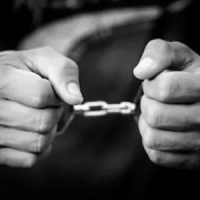How Getting Arrested While Out on Bail Can Land You Back in Jail

As a general rule, when a person is charged with a crime in Florida they are entitled to seek pretrial release from custody on reasonable bail terms. Florida’s own Rules of Criminal Procedure further elaborate that such bail is a right unless the defendant is charged with a capital offense, or another crime punishable by life in prison and “the proof of guilt is evident or the presumption is great.” That said, a judge may revoke pretrial release and order a defendant jailed if they “committed a new crime” while out on bail.
Appeals Court: Bail Revocation Justified Despite State Not Prosecuting New Charge
So what happens if a defendant is arrested for a new crime while out on bail but that new case is never actually prosecuted? A recent decision from the Florida Sixth District Court of Appeal, Irizarry v. State, presented just such a scenario. In this case, the state charged the defendant with various sex crimes involving a minor. The defendant was then granted pretrial release after posting a bail bond.
While out on bail, however, police arrested the defendant on suspicion of domestic battery. This initiated a second criminal case. The judge presiding over the sex crimes case then revoked the defendant’s bail and ordered him jailed pending trial on those charges.
After the defendant was jailed, however, the state decided not to prosecute the domestic battery case after the accuser recanted. The defendant then asked the judge in the sex crimes case to reinstate his bail. The judge denied the request, prompting the defendant’s appeal.
The Sixth District, however, upheld the trial court’s ruling. The appellate court explained that in revoking bail, the judge only had to find there was “probable cause” to conclude the defendant committed a new crime while out on bond. The trial judge made such a finding. The fact the state declined to separately prosecute the alleged domestic battery was irrelevant. Indeed, the Sixth District noted the statute authorizing the judge to revoke the defendant’s bail contained “no requirement that the State prosecute the new crime.”
Contact the Joshi Law Firm Today
The ultimate purpose of bail is not to punish a defendant before they are convicted of a crime. Rather, it is to ensure that the defendant makes all required court appearances in connection with their criminal trial. Bail is first and foremost about preventing a defendant from fleeing the jurisdiction of the court.
At the same time, a court can impose certain conditions on pretrial release that a defendant must strictly comply with–or face a potentially lengthy period of jail before their trial takes place. Such conditions often include restrictions on the defendant’s ability to travel or an order not to contact the alleged victim in the case.
If you have been charged with a crime and need legal representation from a qualified Orlando bail and bond lawyer, call the Joshi Law Firm, PA, at 844-GO-JOSHI today or contact us online to schedule a free initial consultation with a member of our team.
Source:
scholar.google.com/scholar_case?case=9383598198089803213

